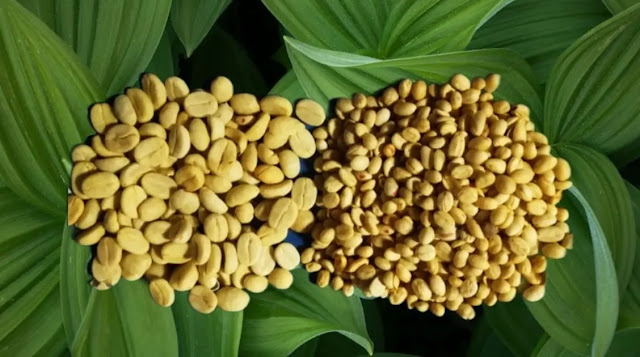Brewing your coffee has many benefits. You'll save money on your monthly coffee purchases, especially if there are multiple cups a day. You will also have more control over the flavor you choose.You need to determine which coffee beans the best suit your particular taste. We will look at The most appreciated and famous types of coffee beans. We will focus on the characteristics of each type and the flavor you can extract from it.
Arabica
This variety of beans is probably something you've been using for a while if you've been brewing coffee for a while. It is the most popular type of coffee bean, and it accounts for more than half of all cups of coffee in the world.
To grow the Arabica tree needs plenty of sunshine and regular rainfall. They can thrive at higher elevations and are low maintenance. These trees are easy to harvest and prune as they typically reach six feet in height.
Arabicas are very meticulous about their environment. They won't thrive if they don't get the right environment to grow in and can easily get sick. It is a bad idea for Arabian trees to be grown close together as the disease can spread quickly from tree to tree.
What flavors can you get from arabica beans?
All of its flavors will remain intact if served hot. The perfect amount of acidity will be achieved and you will also detect fruity undertones. It has an overall mild and slightly sweet flavor.
Liberica
Because Liberica is not as well known today as Arabica, it is hard to find these days. In the 1890s, Liberica was temporarily overtaken by Arabica as the favorite coffee bean variety due to a disease that nearly decimated the former's population. That all changed when Arabica was reintroduced as the top choice for coffee beans years later. This has led to a decrease in the number of Liberica tree plantations.
Due to their unusual and asymmetrical shapes, Liberica beans stand out from all other varieties. These beans are known for their strong, earthy flavor. This bean, like Arabica, also has distinct fruity undertones and a slightly charred flavor.
Robusta
In terms of popularity, the Robusta coffee bean is second. But that’s not where the similarities with Arabica end. Robusta trees are not susceptible to environmental conditions and are resistant to many of the same diseases as Arabica. Although they can thrive at low and high elevations, they need warmer temperatures to grow well. Their high levels of caffeine are the key to their remarkable disease resistance. They contain twice as much caffeine as Arabica.
If this variety is grown in the right climate, you should get a full-bodied, richer-tasting coffee. It will have a softer texture, less acidity, and more chocolate undertones. While it's okay to use Robusta beans to brew black coffee, coffee connoisseurs believe Robusta beans taste best when infused with cream, sugar, and milk. These additives do not alter the original flavor.
Robusta is a great choice if you like cream and sugar.
These flavors may not be apparent if you are unable to detect them.
Excelsa
Excelsa is the only coffee bean that closely resembles Liberica. Both types are the same species. This is because they are very different in taste. Excelsa is a mixture of different tones. This coffee has a combination of sweet and fruity flavors, with hints of darker notes. This gives a unique cup of coffee every time.
Racemosa
Coffea racemosa is a lesser-known variety, similar to Arabica. It is grown in the coastal strip of South Africa and Mozambique. Adapted to the local climate, it is drought resistant and also grows on sandy soils. Racemosa has a low caffeine content, less than half of Arabica and a quarter of Robusta. The coffee produced is very fragrant.
It may be worth researching the beans you buy if you plan to make your coffee. You will be able to identify the types of flavors you can expect from each coffee bean. Knowing the requirements of growing coffee beans will help you determine if you are getting a high-quality product.









0 Comments:
Post a Comment